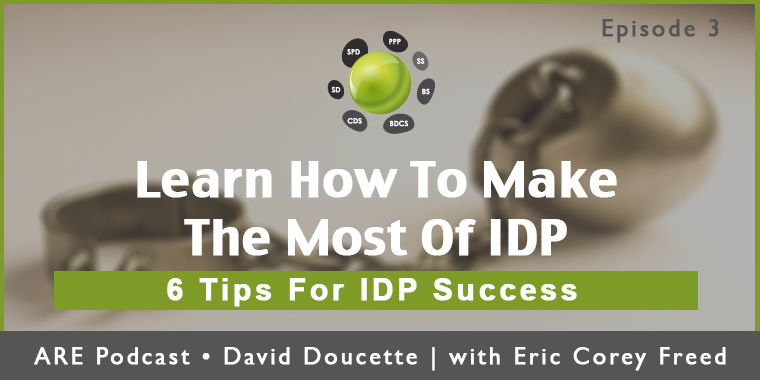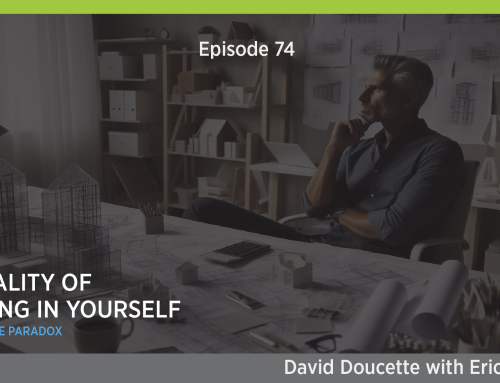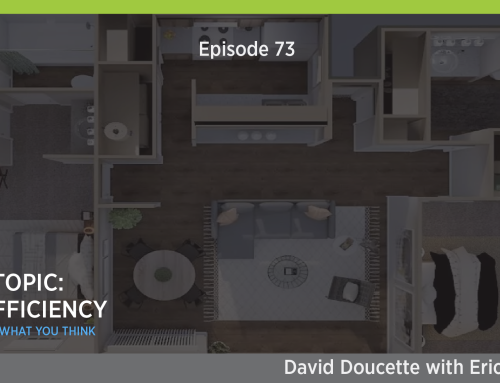The Intern Development Program administered by NCARB is the foundation of starting your architectural career off on the right foot. It’s not only your road map for success, but it is also your leverage to prevent your boss from keeping you chained to your desk for t
In this episode, Eric and I discuss the Intern Development Program (IDP) administered by NCARB. It’s a requirement in many jurisdictions prior to sitting for the Architect Registration Exam (ARE). We take a look at the 6 Steps For Success in detail and give our thoughts and concerns as you move through the process.
- Establish NCARB Record
- Document your IDP Eligibility Date
- Identify IDP Supervisor
- Identify IDP Mentor
- Document Experience
- Be Proactive! – Taking ownership of your career
Click to Listen
Watch the Video
Show Notes for this Episode
Download the IDP Guidelines.
STEP 1. Establish NCARB Record
Go to NCARB.org and go to the “My NCARB” Section and create new account
Student or Recent Graduate (within 6 months): $100 to start + $250 later
If you are a student or have graduated within six months of when you establish an NCARB Record, you may split the application fee into two payments. You may pay $100 when you establish your Record. The balance of $250 will be due when you are ready to have your Record transmitted to a jurisdiction or when you request an Authorization to Test for the Architect Registration Examination® (ARE®).
STEP 2. Document Eligibility Date
The date after which you are eligible to earn IDP experience.
1. Either determined by your IDP Educator Coordinator at your school
2. IDP Supervisor
IMPORTANT NOTE: You must satisfy your school’s earning requirement before beginning IDP. You can’t Double Dip.
STEP 3. Identify Your IDP Supervisor
Person who;
1. Supervises you on a daily basis
2. Certifies your work experience
Usually licensed architect but under certain circumstances could be a professional from another discipline
STEP 4. Identiy Your Mentor
Trusted advisor, mentor or coach who works outside of your firm
Meet monthly via in person or the internet
Must be licensed architect in any jurisdiction
STEP 5. Document Experience
Three Types of Experience
- Type A – Practice of Architecture: 1,860 Hours Minimum
- Type O – Other Work Settings: 1,860 Hours Maximum
- Type S – Supplemental Experience
Total Hours 5,600
- 3,740 Core minimum hours
- 1,860 Hours: any experience, including Supplemental Experience opportunities
Experience Categories
- Pre-Design
- Design
- Project Management
- Practice Management
Experience Areas – 4 Experience Categories divided into 17 Experience Areas
Category 1: Pre-Design
- Programming – 80 Hours
- Site and Building Analysis – 80 Hours
- Project Cost and Feasibility – 40 Hours
- Planning and Zoning Regulations – 60 Hours
- Total Hours – 260
Category 2: Design
- Schematic Design – 320 Hours
- Engineering Systems – 360 Hours
- Construction Cost – 120 Hours
- Codes and Regulations – 120 Hours
- Design Development – 320 Hours
- Construction Documents – 1,200 Hours
- Material Selection and Specification – 160 Hours
- Total Hours – 2,600
Category 3: Project Management
- Bidding and Contract Negotiation – 120 Hours
- Construction Administration – 240 Hours
- Construction Phase: Observation – 120 Hours
- General Project Management – 240 Hours
- Total Hours – 720
Category 4: Practice Management
- Business Operations – 80 Hours
- Leadership and Service – 80 Hours
- Total Hours – 160
STEP 6 – Be Proactive!
- Don’t get pigeonholed
- Once boss finds out you do something well, they’ll have you do more of the same thing
- Commercial vs residential – different skill set
- Work to become well rounded
- Stay away from office politics
- Small to medium size firm may be best for getting well rounded experience
- Keep track of your hours – create a spreadsheet and log it weekly, if not daily
Please Subscribe
Receive automatic updates when you subscribe below!
Please rate us on iTunes!
If you enjoyed the show, please rate it on iTunes and write a review. It would really help us spread the word about the ARE Podcast. Thanks!






